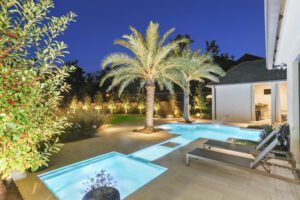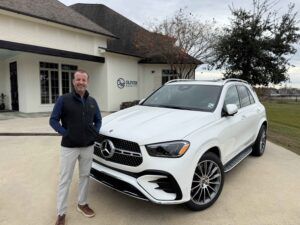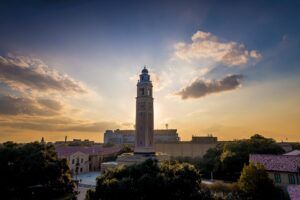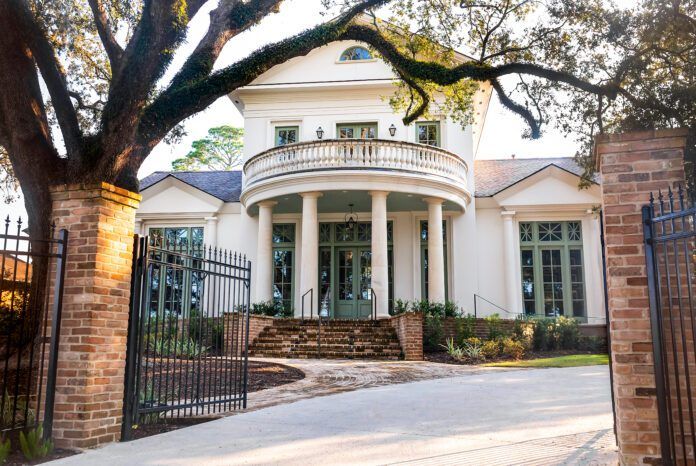Trekking down the Teche – One man takes to the waterway to experience Cajun Country up close
Charlie McVea drinks from a bottle of Irish brown liquor and surveys the south Louisiana waterway before him, his dog Scout by his side. This 67-year-old is traveling 135 miles via canoe down the Bayou Teche from Port Barre to Berwick. It’s a trek that will take him eight days to complete, paddling nine hours a day and camping along the Teche’s banks at night.
“You can get away from all the encumbrances of life, and you can start tomorrow,” McVea says. “The trip can be as remote and demanding as you wish, and you don’t have to go across the country or leave the states.”
McVea grew up in Baton Rouge and is now retired from making his living managing a tugboat and shipyard in Mississippi.
He embarked on this outdoor adventure for a variety of reasons. His childhood memories play a part. As a youth, McVea would travel into the Atchafalaya spillway for two-, three-, and sometimes four-night trips, before the construction of the Interstate 10 bridge. He’d sleep in a green, moldy jungle hammock purchased from Steinberg’s. Even today, McVea says he can still recall that musty odor.
“I would fish all day, make camp, fry fresh fish for supper, set a couple of small jaw traps, shine coons later at night, and fish again at daybreak,” he says. “I thought every kid in the world was growing up like that.”
His ancestry also prompted him to journey down the Teche. His Irish relatives settled near Bayou Sara in the early 1820s. Combine that with his interest in Louisiana history, McVea says, and you see what underpins his yearning to “see Cajun Country from the water.”
In canoeing the Bayou Teche, McVea is acting on his belief that we all need to get back to nature. “We are no longer experiencing the things in life that have been such strong, steering forces in human development,” he says.
There are others who share McVea’s passion. An organized Tour du Teche canoe and kayak race is held annually in October. The race first started in 2010, according to the St. Landry Parish tourism commission, and in its first year had 60 teams sign up. Only 37 finished.
Cory Werk, owner of Bayou Teche Experience in Breaux Bridge, says canoeing the waterway’s entire length, whether on your own or by participating in the Tour de Teche, is a “crowning achievement.” Werk’s business offers guided tours, equipment rentals, and shuttle service to and from the Atchafalaya Basin, Lake Martin and along Bayou Teche.
McVea used the Bayou Teche Experience for his journey. “It was a lot of dadgum work,” says McVea, “but I enjoyed the heck out of it.”
One early morning, McVea faced 50 mph winds, lightning, flooding, and even hail. While strung up in his jungle hammock in the trees, he found the ground below him covered in six inches of water. Shoeless, he scrambled to grab his belongings before they floated away. Throughout the trek, he encountered wildlife of all types, including alligators. And although he never saw it, McVea swears that a black bear—near Patterson—once wandered into his camp.
But for this explorer, to experience nature up close and see Lake Martin made the trials of the trip worthwhile.
“It was an absolutely beautiful moment in time,” he says. “When I pulled the kayak over the levee at the northwest end of the lake and found myself totally alone, except for Scout, with the beautiful cypress trees, birds and alligators, it gave me a feeling of solitude and peace that is hard to find today.”
McVea wasn’t completely isolated throughout the journey, however. He encountered numerous “typical Louisiana folks, good folks,” which made his trip even more enjoyable.
One night, a stranger offered McVea a freshly cooked dinner of shrimp pasta. Another evening, at a public park in Baldwin, a father and son boated over to McVea’s camp bearing him a plate of fried catfish, hush puppies, crawfish stew over rice, with a cold Coke and cookies. They even had food for Scout.
The Louisiana people and the south Louisiana landscape keep drawing McVea back to the state of his birth. He proudly admits that Louisiana will always be home.
“It’s hard to shake that,” he says. “We went to Mississippi in 1974, and although we love our sleepy coastal town and our wonderful neighbors, we still call Louisiana our home.” ¦











